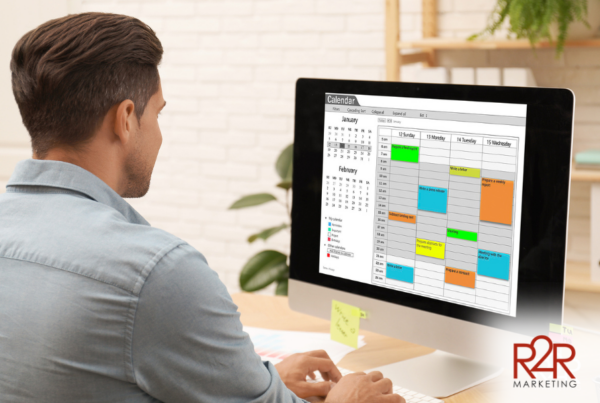One of the best tools we use at R2R Marketing is consistent, accurate note-taking. Note taking helps us be more efficient with our time, reduce repeat inquiries to prospects and clients, and helps ensure accuracy with everything we do. We don’t simply rely on our individual notes, either – we will consolidate and compare after a meeting, and if there is a discrepancy, review and dig into the difference, until we get it resolved.
In my early years out of college I was a newspaper and radio reporter, and learned first-hand the value of good, accurate notes. From recoding quotes correctly to crafting an article based on conversations with multiple interview subjects, my reporter’s notebook was the key to getting it right, often on tight deadlines.
I believe that approach should be used for sales professionals and business owners. How many times have you spoken with a salesperson or business rep and felt like they weren’t really listening to your needs? Nothing screams “I don’t care about you” louder than a salesperson who doesn’t write down your interests, needs and desires. As a sales coach once told me, a doctor doesn’t prescribe medicine without examining a patient and reviewing the findings – that would be malpractice. The same is true for business owners and sales pros: ask the questions, note the answers and then develop a solution.
Here are a few tried-and-true note-taking techniques that you may find helpful in your business:
Use an Interview Sheet — Good salespeople ask the same foundational questions of every potential customer or client. An interview sheet is a printed list of those questions, with plenty of space to take notes. The interview sheet makes sure you don’t skip any questions, or forget to obtain information you’ll need later. Mine is four pages, and when completed has everything I need to prepare a proposal.
Ask Permission — Before you start taking notes, ask the others if they mind if you take notes. They always say yes, and it shows you are both respectful of their time and presence, and that you take their interests seriously. It’s a win-win question.
Summarize Your Notes in a Follow-Up — Soon after your meeting or appointment, send a follow-up that summarizes the key points and any action items. This shows all involved that you were paying attention, and also gives others a chance to address any misunderstanding. In sales, that follow-up often becomes the lead-in to presenting a solution. Whether it’s five minutes after the questions stop, or when you’ve created a proposal several days later.
Know What’s Important — You aren’t a court reporter – take notes about the important things, or the things that appear to be important to the other person.
Focus on the People — Good interviewers take notes without constantly looking at their notebook. Maintain eye contact and don’t let note-taking distract you from the personal connection, whether it’s in-person or over a video call.
Finally, recognize that note taking is a skill that gets better over time. And, if it’s simply too much for you to handle, consider having a second, trusted and skilled person handle the note-taking, while you focus on the interview or conversation.





